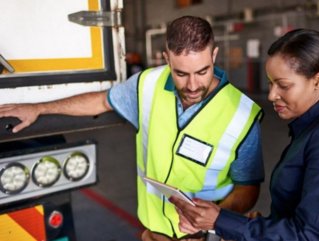Global logistics news roundup: Cainiao hub takes shape

EU approves clean maritime fuel regulations
The European Union (EU) has approved regulations for climate-neutral shipping, as outlined in the FuelEU maritime proposal, reports Port Technology.
FuelEU Maritime is a regulation that supports the decarbonisation of the shipping industry and will come into force from 1 January 2025
The new regulations will mean an increase in renewable and low-carbon fuels, which will reduce the carbon footprint of the maritime sector in the EU.
The objective of FuelEU is to increase usage of renewable and low-carbon fuels and reduce greenhouse gas (GHG) emissions by 2% by 2025, and by as much as 80% by 2050.
The regulations will lead to the eventual exclusion of fossil fuels from its certification process.
It will also be an obligation for passenger ships and containers to use on-shore power supply for all electricity needs while moored at the quayside in major EU ports as of 2030, with a view to mitigating air pollution in ports, which are often close to densely populated areas.
Cainiao Jakarta logistics hub taking shape
Cainiao – the logistics arm of Alibaba Group – has announced a new warehouse in Jakarta, Indonesia, as part of its regional expansion plan. The new Cainiao Cikarang Logistics Park is part of a regional warehouse network of Cainiao Hubs in Southeast Asia, and is the third warehouse in the network.
It is located near factories to support the local manufacturing industry. The vision is for Cainiao Cikarang Logistics Park to support manufacturers in their logistics and trading needs, including fulfilment, last mile, import and export for B2B and B2C businesses, smart supply chain management, and logistics technology including IoT, automation and warehouse management systems.
“This new warehouse is our first infrastructural investment in Indonesia and the third in the region,” said Eric Xu, Vice President, Cainiao Group. “Our strong network and expertise in logistics and supply chain capabilities will help our partners and customers in Indonesia accomplish more in less time and boost local and regional trade activities by streamlining workflows and processes across the value chain.”
UK public fearful over autonomous haulage
A survey of 2,000 British people has revealed significant concern about the introduction of self-driving lorries in the UK.
AI and data analytics company Aimpoint Digital found that more than half (55%) of UK adults disapprove of self-driving freight vehicles on UK roads.
The survey follows news UK roads could see self-driving vehicles rolled out by 202, with public transport companies already introducing autonomous services in some areas of the country.
The main concern is safety for other road users (70%), risks for pedestrians (64%) and doubt that self-driving vehicles can respond well to real-life driving conditions (64%).
Beyond safety, over half (52%) of respondents worry about potential job losses due to the introduction of self-driving vehicles. Almost half (45%) are also concerned about the lack of regulation surrounding the technology, while 44% fear autonomous vehicles wil be prone to cyber attacks.






